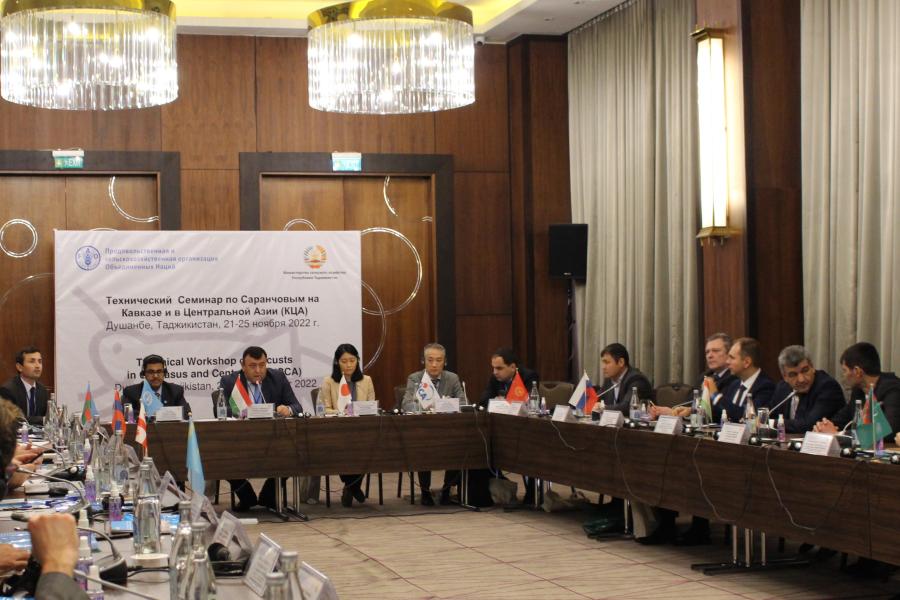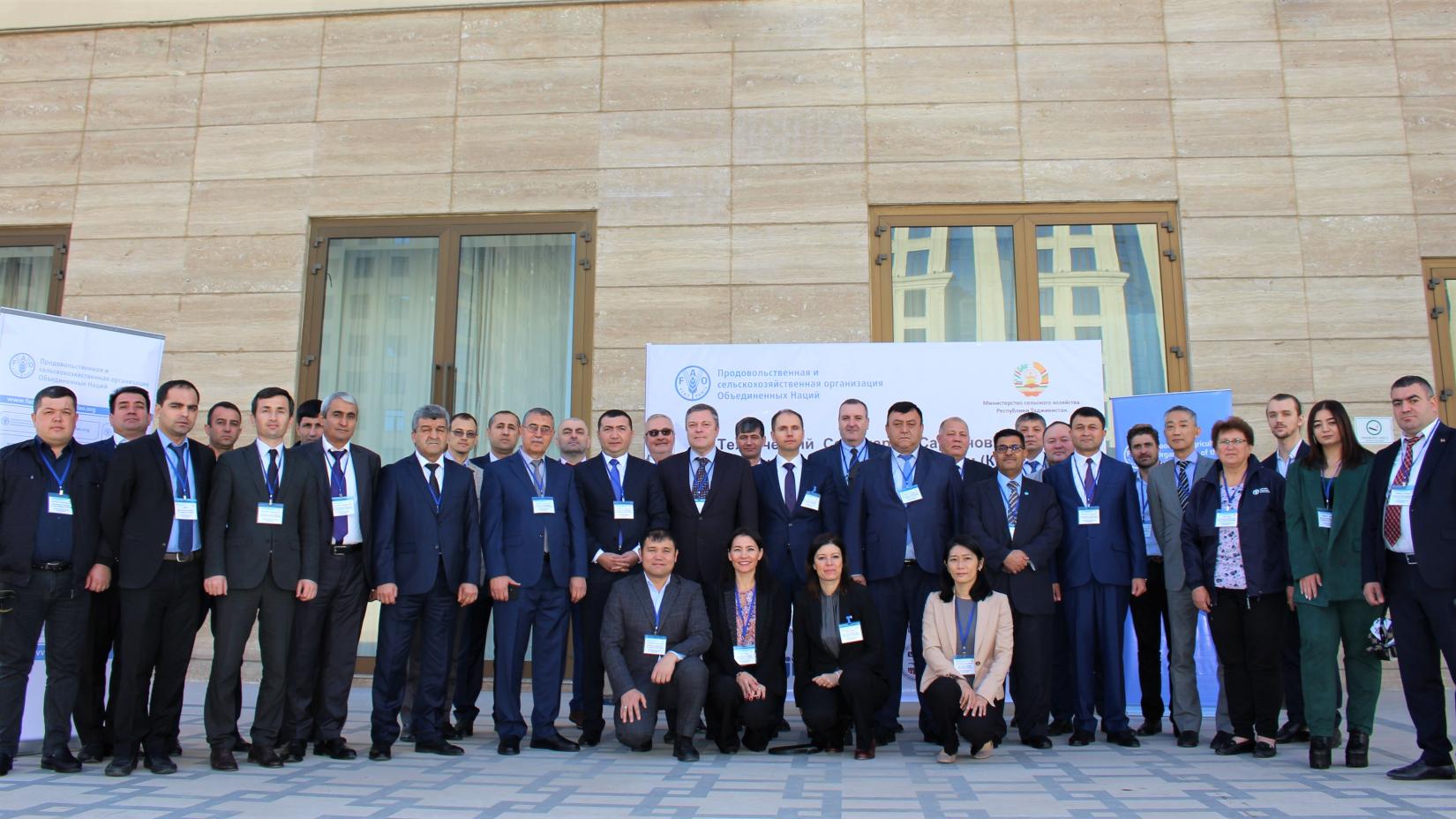FAO is strengthening regional cooperation for more effective locust management
24 November 2022
Food and Agriculture Organization of the United Nations (FAO), in close cooperation with the Ministry of Agriculture of the Republic of Tajikistan, held the Technical Workshop on Locusts in the Caucasus and Central Asia. The workshop was organised with the financial support of the FAO project "Improvement of Locust Management (Phase 2)" supported by the Japanese International Cooperation Agency (JICA) within the framework of “Programme to improve national and regional locust management in Caucasus and Central Asia”.

The goal of the event was to strengthen regional cooperation, sharing experience, knowledge and lessons learned from locust campaigns. The workshop also covered the advanced approaches to improve the countries’ capacities and preparedness for better locust management and risk reduction of locust outbreaks.
Primary, the workshop contributes to safeguarding the rural population's food security and livelihoods. It gathered delegates from Armenia, Azerbaijan, Georgia, Kazakhstan, Kyrgyzstan, the Russian Federation, Tajikistan, Turkmenistan and Uzbekistan, as well as FAO experts. It is the third time that Tajikistan has hosted such an important workshop, however, for the first time in person after two years of global COVID pandemic.
Primary, the workshop contributes to safeguarding the rural population's food security and livelihoods. It gathered delegates from Armenia, Azerbaijan, Georgia, Kazakhstan, Kyrgyzstan, the Russian Federation, Tajikistan, Turkmenistan and Uzbekistan, as well as FAO experts. It is the third time that Tajikistan has hosted such an important workshop, however, for the first time in person after two years of global COVID pandemic.

During the sessions, participants discussed outcomes of the 2022 national anti-locust campaigns, preparation for the next ones, implementation of the Programme in 2022 and the work plan for 2023. It also covered the latest developments of the Automatic System of Data Collection (ASDC) and the Geographic Information System "Caucasus and Central Asia Locust Management System" entitled CCALM, risk reduction associated with locust control operations including through the use of biopesticides and innovative approach such as the use of drones.
"It is important to point out that FAO made significant progress in introducing and promoting advanced and innovative technologies for controlling locusts. It is the right time to make serious steps to shift from the traditional ways of locust management to a more advanced, environmentally friendly and sustainable one, "said Shoki Al-Dobai, Team Leader of Locusts and Transboundary Plant Pests and Diseases, during the opening ceremony. He added, "…sustainable management of transboundary pests like locusts can only be achieved with effective regional cooperation, hence, it is expected further steps are taken towards the creation of a permanent coordination body".
Locusts indeed pose a serious threat to agriculture in the region, with an area of more than 25 million hectares concerned. Locusts are migrant pests. During outbreaks, locusts attack all crops and plants, putting at least 20 million people at risk in the region.
"This event reflects work of paramount importance for ensuring food security at the regional level. It reflects the commitment of the governments and foresightfulness of donor organisations," said Oleg Guchgeldiyev, FAO Representative in Tajikistan. "In Tajikistan, we still need to develop a more participatory mechanism that will allow closer involvement of all stakeholders to redistribute responsibility for more effective locust control. This also includes a more sustainable financial mechanism, which will also to operate beyond the external support".
The “Project for Improvement of Locust Management (Phase 2)” (GCP/INT/384/JCA) has been approved in 2020 by the Government of Japan and the Japan International Cooperation Agency (JICA) to the benefit of six Central Asian countries, namely Afghanistan, Kazakhstan, Kyrgyzstan, Tajikistan, Turkmenistan and Uzbekistan. This project, of a five-year duration and with a budget of USD 7.5 million, is part of the multifunded "Programme to improve national and regional locust management in the Caucasus and Central Asia (CCA)", implemented by FAO since 2011.


